
The Electric Light Orchestra (ELO) are an English rock band formed in Birmingham in 1970 by songwriters and multi-instrumentalists Jeff Lynne and Roy Wood with drummer Bev Bevan. Their music is characterised by a fusion of pop and classical arrangements with futuristic iconography. After Wood's departure in 1972, Lynne became the band's sole leader, arranging and producing every album while writing nearly all of their original material. From this point until their first break-up in 1986, Lynne, Bevan, and keyboardist Richard Tandy were the group's only consistent members.
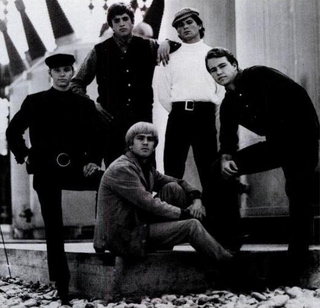
The Electric Prunes are an American psychedelic rock band, formed in Los Angeles, California, in 1965. Much of the band's music was, as music historian Richie Unterberger described it, possessed of "an eerie and sometimes anguished ambiance." Their most successful material was by songwriters Annette Tucker and Nancie Mantz, though the group also penned their own songs. Incorporating psychedelia and elements of embryonic electronic rock, the band's sound was marked by innovative recording techniques with fuzz-toned guitars and oscillating sound effects. In addition, guitarist Ken Williams' and singer James Lowe's concept of "free-form garage music" provided the band with a richer sonic palette and exploratory lyrical structure than many of their contemporaries.

Your Turn to Fall is the seventh Jandek album, and was released as Corwood 0745. It was reissued on CD in 2001.

Sea Change is the eighth studio album by American musician Beck, released on September 24, 2002, by Geffen Records. Recorded over a two-month period in Los Angeles with producer Nigel Godrich, the album features themes of heartbreak and desolation, solitude, and loneliness. For the album, much of Beck's trademark cryptic and ironic lyrics were replaced by simpler, more sincere lyrical content. He also eschewed the heavy sampling of his previous albums for live instrumentation. Beck cited the breakup with his longtime girlfriend as the major influence on the album.
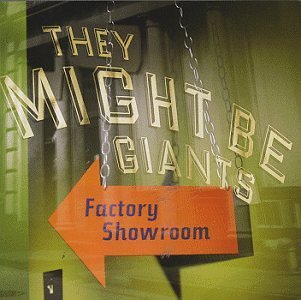
Factory Showroom is the sixth studio album by the American rock band They Might Be Giants. It was released in 1996 by Elektra Records.
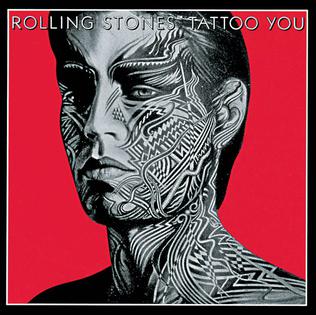
Tattoo You is the 16th British and 18th American studio album by the English rock band the Rolling Stones, released on 24 August 1981 by Rolling Stones Records. The album is mostly composed of studio outtakes recorded during the 1970s, and contains one of the band's most well-known songs, "Start Me Up", which hit number two on the US Billboard singles charts.

ELO 2 is the second studio album by the Electric Light Orchestra (ELO), released in 1973. In the US, the album was released as Electric Light Orchestra II. It was the band's last album to be released by the Harvest label, the last on which the band used the definite article The in their name, and the one that introduced their abbreviated name 'ELO'.

Secret Messages is the tenth studio album by Electric Light Orchestra (ELO), released in 1983 on Jet Records. It was the last ELO album with bass guitarist Kelly Groucutt, conductor Louis Clark and a full orchestra, and the last ELO album to be released on the Jet label. It was also the final ELO studio album to become a worldwide top 40 hit upon release.
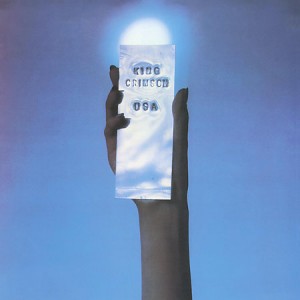
USA is a live album by the English band King Crimson, released in 1975. It was recorded at the Casino, Asbury Park, New Jersey, on 28 June 1974, except “21st Century Schizoid Man”, which was recorded at the Palace Theatre, Providence, Rhode Island, United States, on 30 June 1974. Violin and electric piano overdubs by Eddie Jobson were recorded at Olympic Studios, London in 1975.
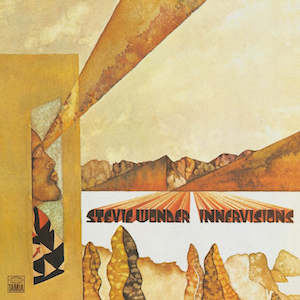
Innervisions is the sixteenth studio album by American singer, songwriter, and musician Stevie Wonder, released on August 3, 1973, by Tamla, a subsidiary of Motown Records. A landmark recording of Wonder's "classic period", the album has been regarded as his transition from the "Little Stevie Wonder" known for romantic ballads into a more musically mature, conscious, and grown-up artist. On the album, Wonder continued to experiment with the revolutionary T.O.N.T.O. synthesizer system developed by Malcolm Cecil and Robert Margouleff, and Innervisions became hugely influential on the future sound of commercial soul and black music.

Southern Accents is the sixth studio album by Tom Petty and the Heartbreakers, released on March 26, 1985, through MCA Records. The album's lead single, "Don't Come Around Here No More", co-written by Dave Stewart of Eurythmics, peaked at number 13 on the Billboard Hot 100. The song "Southern Accents" was later covered by Johnny Cash for his Unchained album in 1996.

Crest of a Knave is the sixteenth studio album by British rock band Jethro Tull, released in 1987. The album was recorded after a three-year hiatus caused by a throat infection of vocalist Ian Anderson, resulting in his changed singing style. Following the unsuccessful electronic rock album Under Wraps, Crest of a Knave had the band returning to a more hard rock sound. The album was their most successful since the 1970s and the band enjoyed a resurgence on radio broadcasts, appearances in MTV specials and the airing of music videos. It was also a critical success, winning the 1989 Grammy Award for Best Hard Rock/Metal Performance Vocal or Instrumental in what was widely viewed as an upset over the favorite, Metallica's ...And Justice for All. The album was supported by "The Not Quite the World, More the Here and There Tour".

Welcome to My Nightmare is the debut solo studio album by American rock musician Alice Cooper, released on February 28, 1975. It is his only album for the Atlantic Records label in North America; in the rest of the world, it was released on the ABC subsidiary Anchor Records. Welcome to My Nightmare is a concept album. Played in sequence, the songs form a journey through the nightmares of a child named Steven. The album inspired the Alice Cooper: The Nightmare TV special, a worldwide concert tour in 1975, and his Welcome to My Nightmare concert film in 1976. The ensuing tour was one of the most over-the-top excursions of that era. Most of Lou Reed's band joined Cooper for this record.

Greatest Hits is the first compilation album by American country music artist Kenny Chesney, released on September 26, 2000, on BNA Records. It features hits from his previous albums, as well as newly recorded tracks. Two of the new tracks — "I Lost It" and "Don't Happen Twice" — were issued as singles. Also released from this album was a re-recording of his 1994 single "The Tin Man". Greatest Hits has been certified quadruple platinum by the Recording Industry Association of America (RIAA) for shipments of over four million copies in the United States.

Day for Night is the fourth studio album by American progressive rock band Spock's Beard released on March 23, 1999.
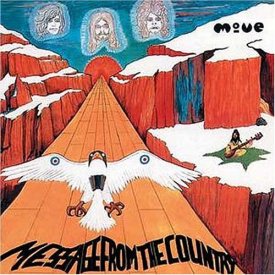
Message from the Country is the fourth and final studio album by the Move, as well as the group's only album for EMI's Harvest label. It was recorded simultaneously with the first Electric Light Orchestra album, The Electric Light Orchestra.

Lost in the Fifties Tonight is the seventeenth studio album by American country music artist Ronnie Milsap, released in 1986. The album produced four singles, all of which claimed the top spot on the Billboard country singles chart, including the title track, which was previously featured on Milsap's Second Greatest Hits Volume. The others included "Happy, Happy Birthday Baby", "In Love" and "How Do I Turn You On."

The Lost Man is a 1969 American crime film, written and directed by Robert Alan Aurthur, loosely based on British author F.L. Green's 1945 novel Odd Man Out, which was previously made into a 1947 film directed by Carol Reed and starring James Mason.

Lost on the River: The New Basement Tapes is an album produced by T Bone Burnett featuring a collective of musicians recording under the moniker The New Basement Tapes—Elvis Costello, Rhiannon Giddens, Taylor Goldsmith, Jim James and Marcus Mumford.

Vince Guaraldi and the Lost Cues from the Charlie Brown Television Specials, Volume 2 is a compilation album by Vince Guaraldi released by D & D Records in 2008. The album is a follow-up to the 2007 release, Vince Guaraldi and the Lost Cues from the Charlie Brown Television Specials, which consisted of previously unreleased music cues featured on several Peanuts television specials produced in the 1970s.




















